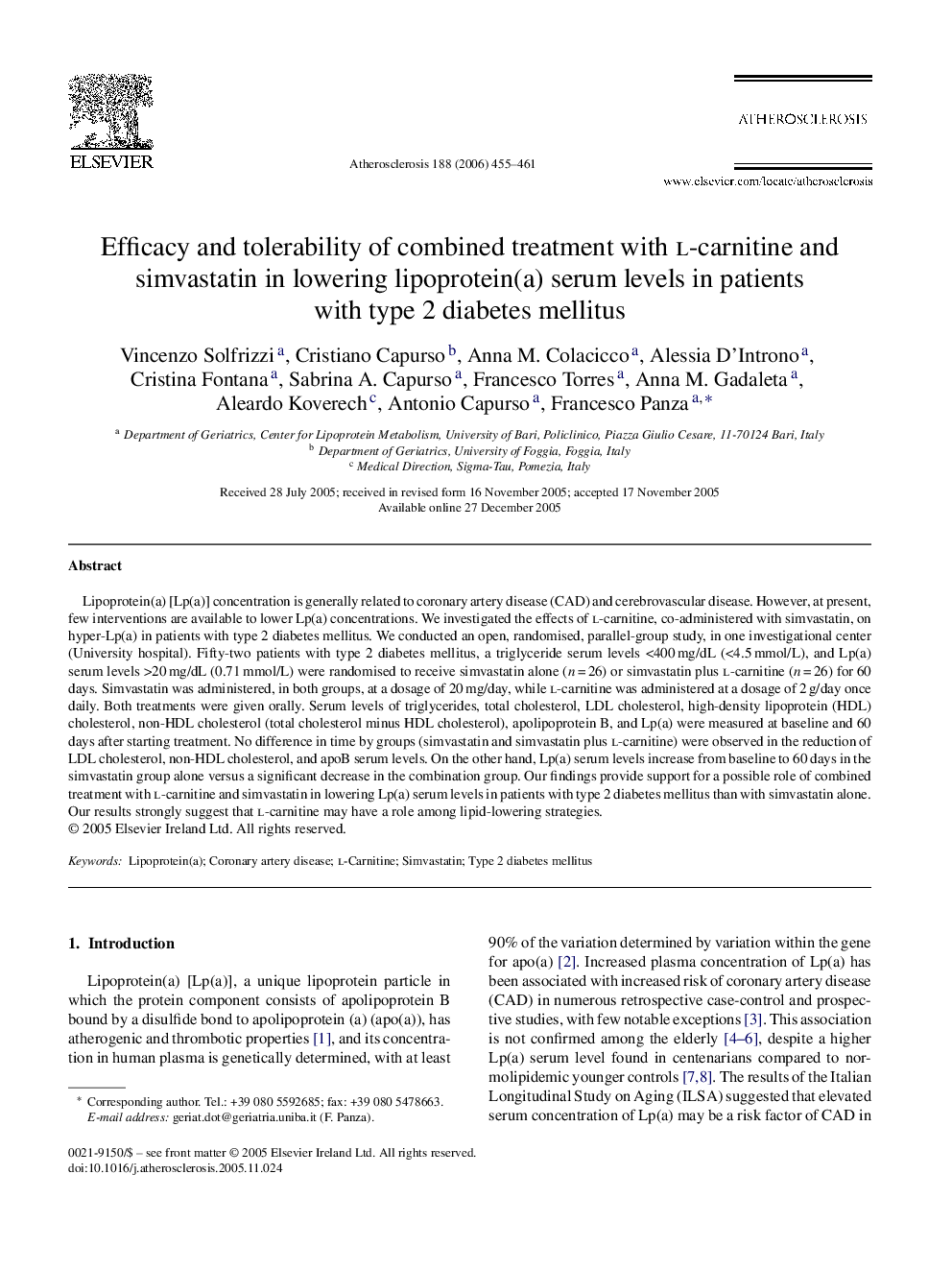| Article ID | Journal | Published Year | Pages | File Type |
|---|---|---|---|---|
| 2895241 | Atherosclerosis | 2006 | 7 Pages |
Lipoprotein(a) [Lp(a)] concentration is generally related to coronary artery disease (CAD) and cerebrovascular disease. However, at present, few interventions are available to lower Lp(a) concentrations. We investigated the effects of l-carnitine, co-administered with simvastatin, on hyper-Lp(a) in patients with type 2 diabetes mellitus. We conducted an open, randomised, parallel-group study, in one investigational center (University hospital). Fifty-two patients with type 2 diabetes mellitus, a triglyceride serum levels <400 mg/dL (<4.5 mmol/L), and Lp(a) serum levels >20 mg/dL (0.71 mmol/L) were randomised to receive simvastatin alone (n = 26) or simvastatin plus l-carnitine (n = 26) for 60 days. Simvastatin was administered, in both groups, at a dosage of 20 mg/day, while l-carnitine was administered at a dosage of 2 g/day once daily. Both treatments were given orally. Serum levels of triglycerides, total cholesterol, LDL cholesterol, high-density lipoprotein (HDL) cholesterol, non-HDL cholesterol (total cholesterol minus HDL cholesterol), apolipoprotein B, and Lp(a) were measured at baseline and 60 days after starting treatment. No difference in time by groups (simvastatin and simvastatin plus l-carnitine) were observed in the reduction of LDL cholesterol, non-HDL cholesterol, and apoB serum levels. On the other hand, Lp(a) serum levels increase from baseline to 60 days in the simvastatin group alone versus a significant decrease in the combination group. Our findings provide support for a possible role of combined treatment with l-carnitine and simvastatin in lowering Lp(a) serum levels in patients with type 2 diabetes mellitus than with simvastatin alone. Our results strongly suggest that l-carnitine may have a role among lipid-lowering strategies.
